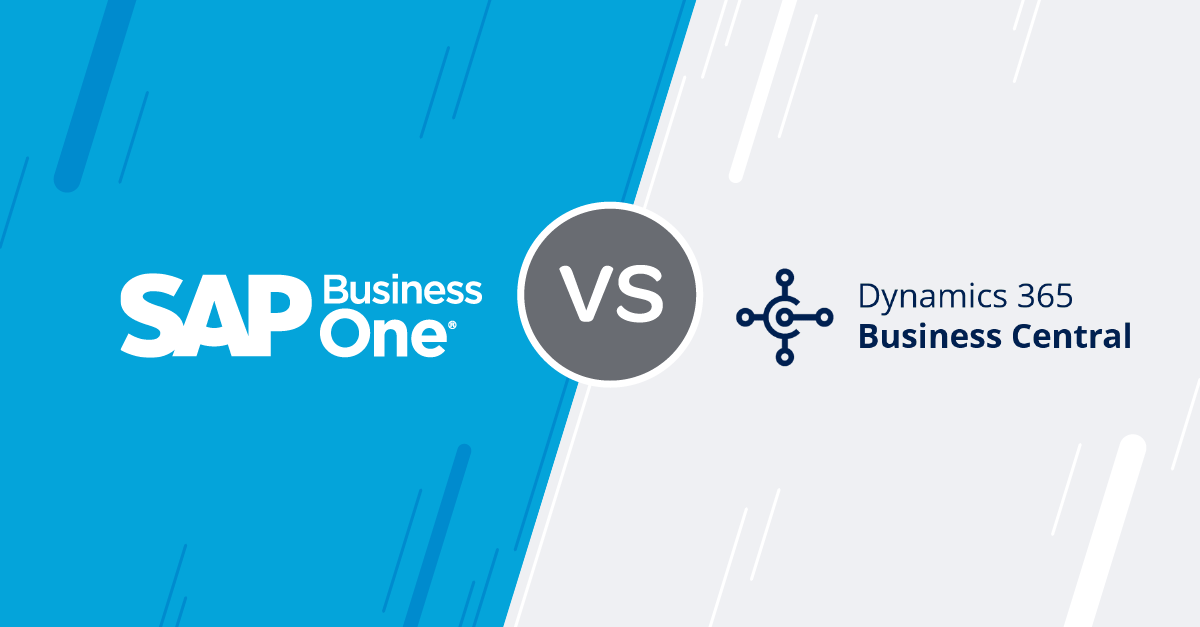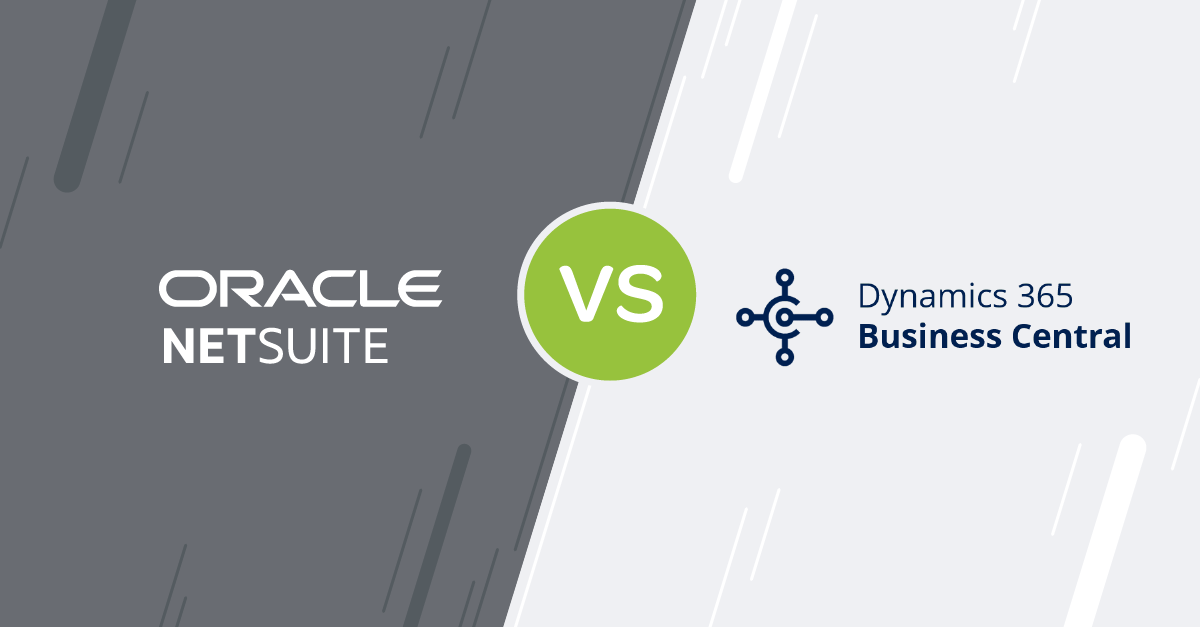Blog
Share this
SAP Business One vs Microsoft Dynamics 365 Business Central

by Jalene Ippolito on March 07, 2022
Your business needs and processes should be the primary driver when selecting a new ERP system. But you’ll inevitably find a few top contenders that seem to have the functionality you need. So, how do you know which is the right one? The simple truth is that every solution has pros and cons. The key is having the right information about each option so you can make an informed decision.
Here we cover the key things to consider about Microsoft Dynamics 365 Business Central and SAP Business One.
Product maturity and capability
Business Central is Microsoft’s cloud-based ERP product targeted at small to mid-size businesses, though they still provide the option to deploy on-premise. It’s based on their legacy NAV solution and while the transition to the new platform was slow off the start, they’ve ramped up in the last couple of years.
Currently, Business Central offers broad functionality and there are certain areas that need add-ons to fill functional gaps, especially for industry-specific needs. Recently, they’ve developed strong supply chain management capabilities and released a native connection between CRM and LinkedIn, giving sales users an easy way to research prospects. Another big strength is the tight integration between Business Central and other Microsoft products, like Office 365.
For CRM-centric companies, Business Central might have an edge over SAP Business One. But when it comes to inventory, production and financials, there’s still a long way to go before Business Central will catch up with SAP Business One’s depth of functionality.
With over 20 years in the market, SAP Business One is a mature product with robust capability across core functional areas. For wholesale distribution and discrete manufacturing companies, SAP Business One offers some of the strongest inventory, production and financial capabilities in the market. While the CRM functionality is strong, the user experience in the desktop application isn’t quite as simple and seamless when compared to Business Central. But you can achieve comparable ease of use with the new web client and sales app.
Ability to scale your business
Microsoft positions their ERP solution as a scalable product that’s suitable across a wide range of industries and business sizes – from small business stage to enterprise. The core message here is that, while you can outgrow other ERP solutions, it’s not possible with Dynamics. As they keep building out functionality, Business Central will be a strong solution that can support you for years to come. But it's important to keep in mind that Dynamics 365 is broken out into two different products – Business Central for SMEs and Dynamics 365 Enterprise for larger organizations. So, if you outgrew Business Central, you might be able to stay in the Dynamics family, but you’d likely be looking at a re-implementation to move to their Enterprise solution. It’s worth asking what that transition looks like, just to know your options.
In our experience, SAP Business One is a scalable solution. Many of our customers implement functionality in stages, starting with the highest priority. And as their business needs change, they configure other standard functionality to accommodate those new processes. It’s an iterative process. SAP Business One also offers flexibility to customize and integrate, so you can extend the life of your solution by expanding functionality in a way that maintains a single source of truth. Here again, ask the SAP Business One partner what the lifespan of a typical system looks like and how they’ve supported their customers through major growth.
Clear and predictable pricing
Microsoft Business Central’s pricing is attractive – it ranges from $10.20 to $128.00 per user per month, based on the license type. If you’re getting the functionality you need, that’s a great price point. If you need to use add-ons to fill functional gaps, consider the additional subscription costs for each add-on product, plus the integrated Microsoft products (Cortana, Power BI, etc.). The costs can add up quickly, especially if you need many add-ons. You’ll want to have a complete picture of your system cost to ensure you’re comparing apples to apples. Then you can make an informed decision on cost and value for money.
SAP Business One uses perpetual licensing, so instead of a monthly subscription fee, you’ll pay a one-time fee for each license, plus an annual maintenance fee to access upgrades. Your upfront cost will be higher and you can easily predict your annual maintenance fee, but keep in mind that it’s harder to remove user licenses once you’ve purchased them. You can work with your implementation partner to get a clear breakdown of the cost for each user license, including any add-ons that you need.
Which ERP software is best?
There’s no one-size-fits-all ERP solution that will be best for every company. But hopefully we’ve provided some insight to help you ask the right questions and dig a little deeper to find the right solution for your business.
With both Business Central and SAP Business One, you’ll want to evaluate the partner as carefully as you do the software. Consider their software knowledge, expertise in your industry, how they work and if they seem like a good fit for your culture. Your partner will be your primary relationship for implementing and maintaining your ERP system, so you want to give equal importance to that decision.
Share this
Stay in the Know!
Join other SMEs who receive our monthly ERP insights, tips and best practices.
You may also like

ERP Funding for Canadian Businesses

Should You Work with a NetSuite Implementation Partner or Go Direct?



